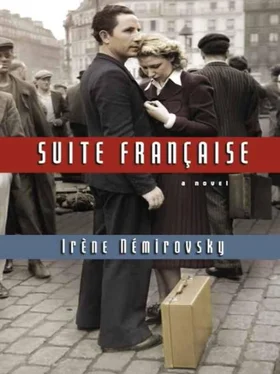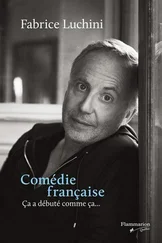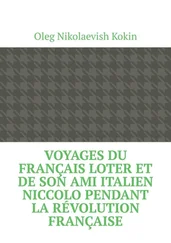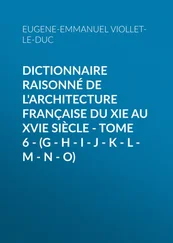In the same way, he thought, the summer of 1940 would remain in the memories of these young women as the summer they were twenty, in spite of everything. He didn't want to think; thinking was worse than physical pain, but everything flooded back, everything went round and round in his head endlessly: being called back from leave on 15 May, those four days in Angers, no trains running any more, soldiers lying on wooden boards, being bitten by insects, then the air raids, the bombings, the battle of Rethel, the retreat, the battle of the Somme, another retreat, days when they had fled from city to city, without officers, without orders, without weapons, and finally the train compartment in flames. He tossed and turned, groaning. He didn't know if the fighting was real, or if it was all a confusing dream born of his thirst and high fever. Come on, it wasn't possible… There are some things that just aren't possible… Hadn't someone said something about Sédan? That was in 1870. He could picture it still: it was at the top of the page, in the history book with the reddish cloth cover. It was… He quietly pronounced the words: "Sédan, the defeat at Sédan… the disastrous battle of Sédan decided the outcome of the war…" On the wall above him the image on the calender, the smiling rosy-cheeked soldier with the two women from Alsace who were showing off their white stockings… Yes, all that was a dream, the past and he… he started trembling and said, "Thank you, it's nothing, thank you, please don't trouble yourself…" while they slipped a hot-water bottle under his heavy, stiff legs.
"You seem better tonight."
"I feel better," he replied.
He asked for a mirror and smiled when he saw the black beard on his chin.
"I'll have to shave tomorrow…"
"If you're strong enough. Who do you want to look handsome for?"
"For you."
They laughed and moved closer. They were curious to know where he came from, where he'd been wounded. Now and again, feeling guilty, they would stop talking. "Oh, but you mustn't let us chatter on… you'll get tired… then we'll start arguing, we will… It's Michaud, your name?… Jean-Marie?"
"Yes."
"Are you from Paris? What do you do? Are you a worker? Of course not! I can tell by your hands. You work in business or maybe in the government?"
"Just a student."
"Oh! You study? Why?"
"My goodness," he said after thinking a moment, "I wonder why myself sometimes!"
It was funny… he and his friends had worked, sat and passed exams, earned diplomas, all the time knowing it was pointless, it wouldn't do them any good because there would be a war… Their future had been mapped out in advance, their careers were made in heaven, just like they used to say that "marriages were made in heaven." He had been conceived while his father was home on leave in 1915. He was born out of the war and (he had always known it) war would be his fate. There was nothing morbid in this idea; he shared it with many boys his age; it was simply logical and reasonable. But, he said to himself, the worst is over now, and that changes everything. Once again there is a future. The war is over-terrible, shameful, but over. And… there is hope…
"I wanted to write books," he said shyly, expressing to these country girls, these strangers, a wish buried deep in his heart that had barely taken shape in his mind.
Then he wanted to know the name of the place, the farm where he was.
"It's far from everywhere," said Cécile, "the middle of nowhere. Oh, it's not usually much fun, I can tell you. The more we look after the animals, the more like them we become, right, Madeleine?"
"Have you been here a long time, Mademoiselle Madeleine?"
"I was three weeks old. Cécile's mother brought the two of us up together. We're sisters, 'cause we nursed from the same mother."
"I can see you get along well together."
"We don't always think alike," said Cécile. "She'd like to become a nun!"
"Sometimes…" said Madeleine, smiling.
She had a pretty smile, unhurried and a little shy.
I wonder where she came from, Jean-Marie thought. Her hands were red but they were graceful, like her ankles and legs. A foster-child… He felt a little curious and a bit sorry for her. He was grateful to her for the hazy daydreams she inspired in him. They were a diversion, they prevented him from thinking about himself, about the war. It was just a shame he felt so weak. It was difficult to laugh, to joke with them… and that must be what they were hoping for. In the countryside, it was commonplace for young girls and boys to tease one another… It was their custom, it was what they did. They would be disappointed and upset if he didn't laugh with them.
He made an effort to smile.
"A boy will come along who will make you change your mind, Mademoiselle Madeleine. Then you won't want to be a nun any more!"
"It's true, it comes over me sometimes, it does…"
"When?"
"Oh, I don't know… on sad days…"
"As for boys, well, there aren't many around here," said Cécile. "I told you we're in the middle of nowhere. The few there are get taken by the war. So then what? Oh, it's really bad luck being a girl!"
"Everyone," said Madeleine, "has some bad luck." She had sat down next to the wounded young man, but suddenly she got up. "Cécile, did you forget! The floor's not been washed."
"It's your turn."
"Oh, really! You've got some nerve! It's your turn!" They argued for a few minutes, then did the job together. They were amazingly skilful and lively. Soon the cool water made the red flagstones shine. The smell of grass, milk and wild mint drifted in from the doorway. Jean-Marie rested his cheek on his hand. It was strange, the contrast between this absolute serenity and the turmoil within him, for the unbearable din of the last six days had remained in his ears and it only took a moment of silence for it all to rise up again: the sound of twisting metal, the dull, slow beating of an iron hammer on an enormous anvil… He winced and started sweating all over… train compartments being machine-gunned, the crash of collapsing beams drowning out people's screams.
"Even so," he said out loud, "I just have to put that out of my mind, don't I?"
"What's that? Do you need something?"
He didn't reply. Suddenly he didn't recognise Cécile and Madeleine. They shook their heads, dismayed.
"It's his fever getting worse."
"And you made him talk too much!"
"Are you having me on! He didn't say a word. We were the ones talking the whole time!"
"It wore him out."
Madeleine leaned down over him. He saw her pink cheek right next to his, caught its scent of strawberries and kissed it. She stood back blushing and laughing, fixing some locks of hair that had fallen down.
"All right, all right now, you scared me… You're not as sick as all that!"
"Who on earth is this girl?" he thought. He had kissed her as if he were bringing a glass of cool water to his lips. He was on fire. His throat, the inside of his mouth seemed to crack from the heat, dried out by the intensity of the flames. This bright, soft skin quenched his thirst. At the same time he felt totally lucid, with the kind of lucidity that comes from sleeplessness and fever. He had forgotten the names of these young girls and his own. The mental effort it took to understand his present condition, in this place he didn't recognise, was too difficult for him. He wore himself out trying, but in the meantime his soul drifted light and serene, like a fish in the water, like a bird blown along by the wind. He didn't see himself, Jean-Marie, but someone else, a nameless soldier, defeated, but refusing to give up hope, a wounded young man who did not want to die, a desperate man who refused to despair. "Even so, we have to make it through… we have to get away, from this blood, from this mud dragging us down… We're not just going to lie down and die… Are we, well, are we? That would be too ridiculous. We have to hang on… hang on… hang on…" he muttered, and when he came to, eyes wide open, clinging to his bolster, sitting up in bed, he gazed at the night with its full moon, the silent, sweet-smelling night, the sparkling night, so gentle after the heat of the day and which, for once, the farmhouse welcomed through its open doors and windows so it could refresh and bring peace to the suffering man.
Читать дальше

![Константин Бальмонт - Константин Бальмонт и поэзия французского языка/Konstantin Balmont et la poésie de langue française [билингва ru-fr]](/books/60875/konstantin-balmont-konstantin-balmont-i-poeziya-francuzskogo-yazyka-konstantin-balmont-et-thumb.webp)










